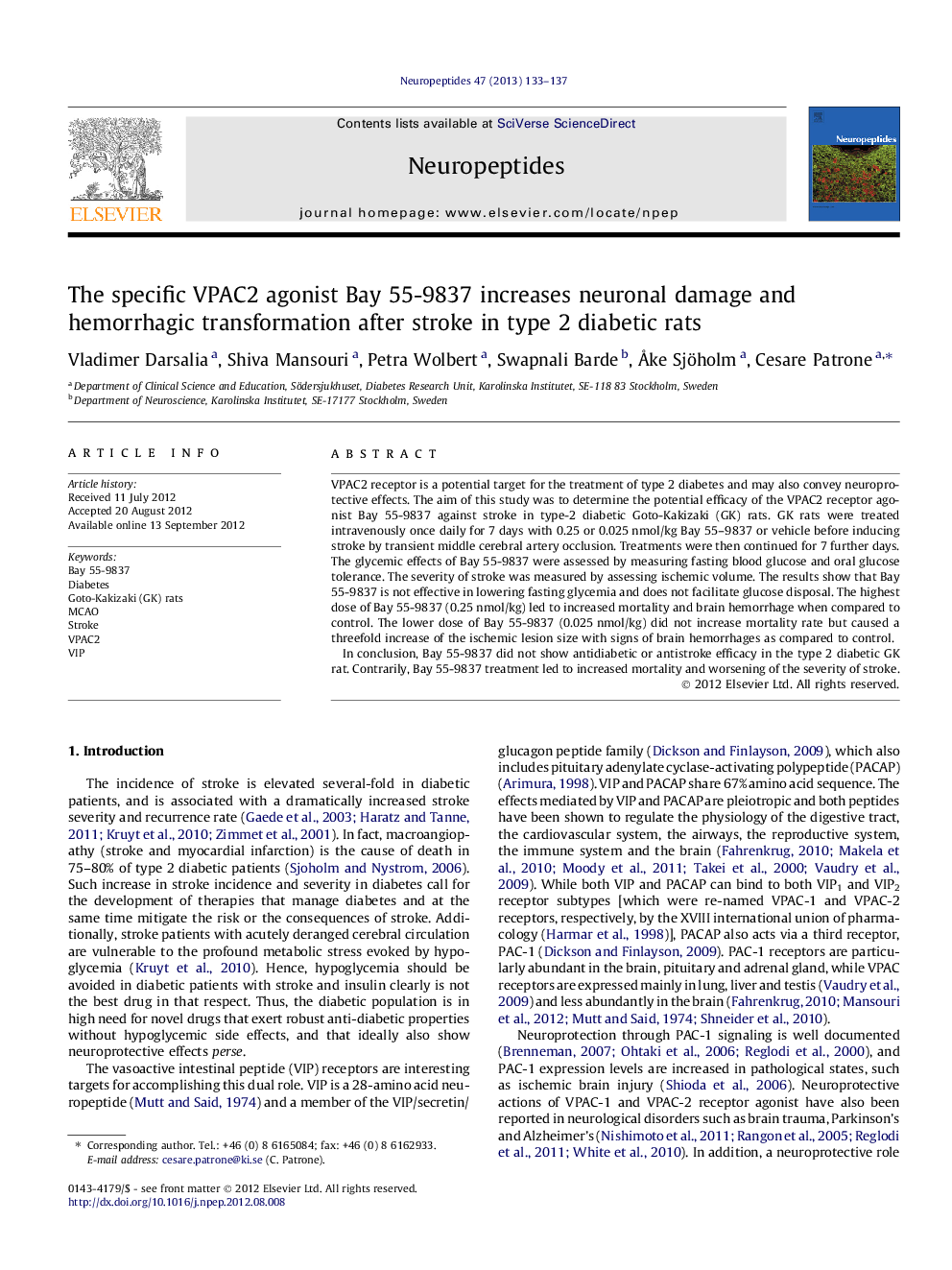| Article ID | Journal | Published Year | Pages | File Type |
|---|---|---|---|---|
| 2808134 | Neuropeptides | 2013 | 5 Pages |
VPAC2 receptor is a potential target for the treatment of type 2 diabetes and may also convey neuroprotective effects. The aim of this study was to determine the potential efficacy of the VPAC2 receptor agonist Bay 55-9837 against stroke in type-2 diabetic Goto-Kakizaki (GK) rats. GK rats were treated intravenously once daily for 7 days with 0.25 or 0.025 nmol/kg Bay 55–9837 or vehicle before inducing stroke by transient middle cerebral artery occlusion. Treatments were then continued for 7 further days. The glycemic effects of Bay 55-9837 were assessed by measuring fasting blood glucose and oral glucose tolerance. The severity of stroke was measured by assessing ischemic volume. The results show that Bay 55-9837 is not effective in lowering fasting glycemia and does not facilitate glucose disposal. The highest dose of Bay 55-9837 (0.25 nmol/kg) led to increased mortality and brain hemorrhage when compared to control. The lower dose of Bay 55-9837 (0.025 nmol/kg) did not increase mortality rate but caused a threefold increase of the ischemic lesion size with signs of brain hemorrhages as compared to control.In conclusion, Bay 55-9837 did not show antidiabetic or antistroke efficacy in the type 2 diabetic GK rat. Contrarily, Bay 55-9837 treatment led to increased mortality and worsening of the severity of stroke.
